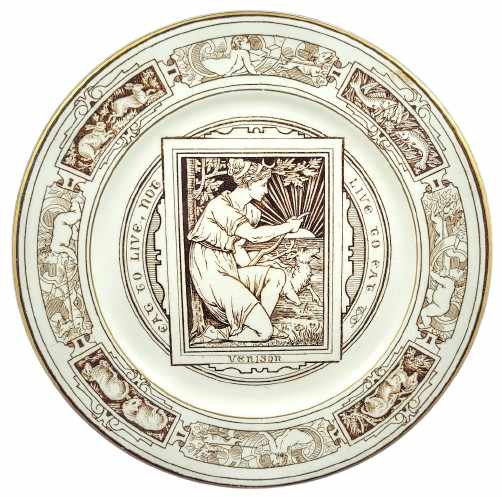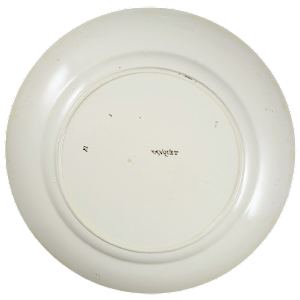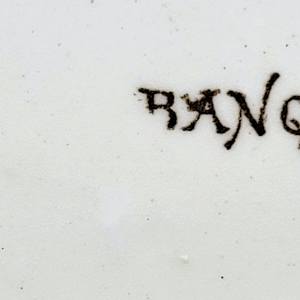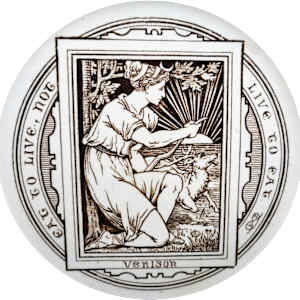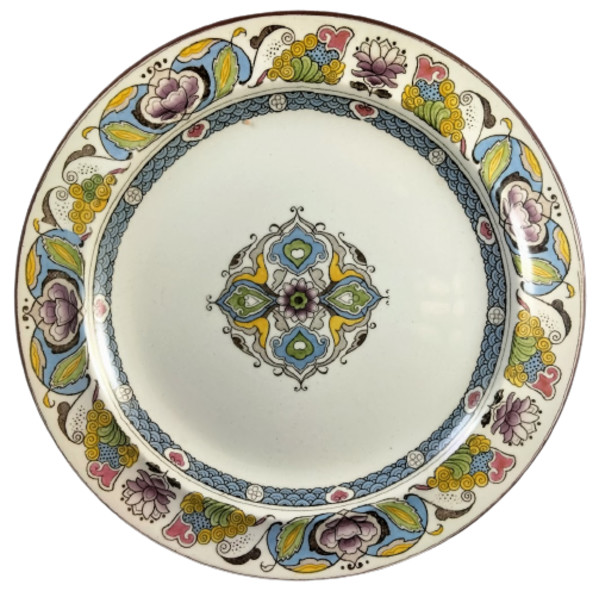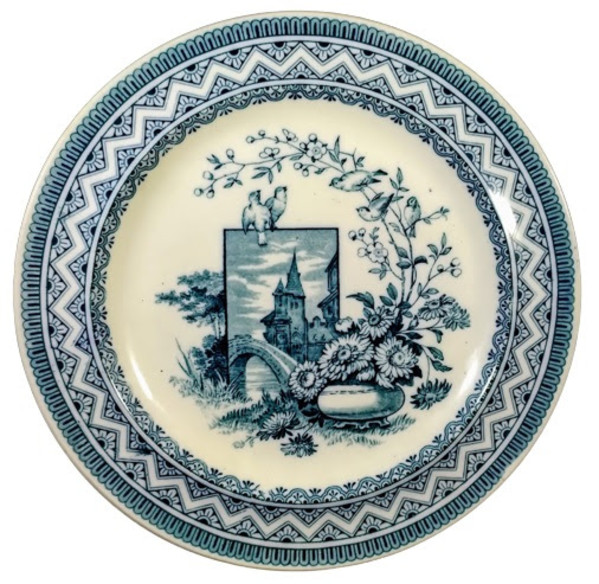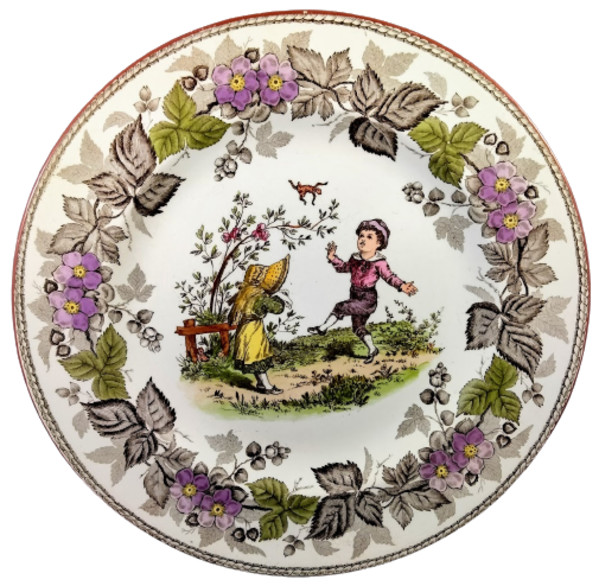- Josiah Wedgwood
- Banquet, 1877
- Earthenware
- 10.25 x 10.25 in (26.04 x 26.04 cm)
-
Not For Sale
Plate, 10.25 inches diameter. Brown transfer with gilding. Impressed maker's mark for Josiah Wedgwood. The impressed letters indicate a manufacture date of 1879. This is one of five known patterns in the series 'Courses of a Meal' designed by Thomas Allen, Wedgwood's art director, c. 1877 for tiles. Versions of these subjects were also applied to dinnerware and titled ‘Banquet.’ This pattern features a central, rectangular cartouche with an image of Artemis/Diana, the ancient Greek/Roman goddess of hunting and wild animals, kneeling on the ground with the traditional stag at her side. The goddess is wearing a short chiton (tunic) for agility, sandals, and wears her emblem, the crescent moon, on her head. She is framed on the left by a tree and as she was also seen as a personification of the moon, the sun in the background is most likely setting as night approaches. Below this scene is the word ‘Venison.’ The rectangular cartouche is superimposed over a roundel featuring the motto: ‘Eat to live, not live to eat’ and a Staffordshire knot with the initials (TA) of the designer, Thomas Allen. The border consists of rectangular panels alternating between a nude child holding a running dog on a leash, and animals in nature: fish, a stag, sheep, and hares.
Josiah Wedgwood was born in Burslem, Staffordshire, on July 12, 1730, into a family with a long tradition as potters. At the age of nine, after the death of his father, he worked in his family's pottery. In 1759 he set up his own pottery works in Burslem. There he produced a highly durable cream-colored earthenware that so pleased Queen Charlotte that in 1762 she appointed him royal supplier of dinnerware. From the public sale of Queen's Ware, as it came to be known, Wedgwood was able, in 1768, to build near Stoke-on-Trent a village, which he named Etruria, and a second factory equipped with tools and ovens of his own design. At first only ornamental pottery was made in Etruria, but by 1773 Wedgwood had concentrated all his production facilities there. During his long career Wedgwood developed revolutionary ceramic materials, notably basalt and jasperware. After Wedgwood's death in Etruria on January 3, 1795, his descendants carried on the business, which still produces many of his designs.
- Subject Matter: Aesthetic (Classical)
- Collections: Aesthetic Transferware, Josiah Wedgwood
